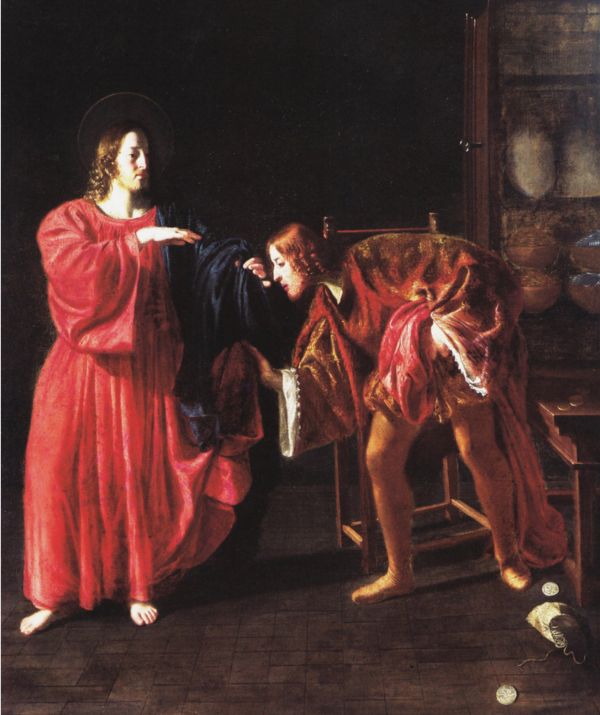On the feast of St Matthew the Apostle, the liturgy proposes the Gospel passage of the same name, narrating his conversion and following.
Jesus responds to the malignity of the leaders by saying:
"It is not the healthy who need a doctor, but the sick" (Mt 9:12).
Underlining their distance from Mercy; slaves to their own legalisms.
When the divine Light made him realise that the Lord was calling him to follow in His footsteps, Francis left everything behind immediately and devoted himself to how to better live the Gospel.
Jesus had made it clear to him that Mercy must always prevail in events.
In the Sources we read:
"Oil and wine, rod and staff, zeal and indulgence [...] everything has its time.
All this is required by the God of vengeance and the Father of mercies: but he prefers mercy to sacrifice' (FF 763).
One day while he was praying he heard himself say:
"Francis, if you want to know my will, you must despise and hate everything that you worldly love and desire to possess.
When you have begun to do this, what was previously attractive to you will seem unbearable and bitter" (FF 1407).
Hence his love for lepers:
"After a few days, he took a lot of money with him and went to the lepers' hospice; he gathered them together and distributed alms to each one, kissing their hands.
On his return, the contact that had previously been repugnant to him, that is, seeing and touching lepers, was truly transformed into sweetness" (FF 1408).
Already, the divine Master feasts on the sick and does not abhor them, because it is they who need the physician and by them Francis was healed in soul.
S. Matthew Ap. Ev. (Mt 9:9-13)












